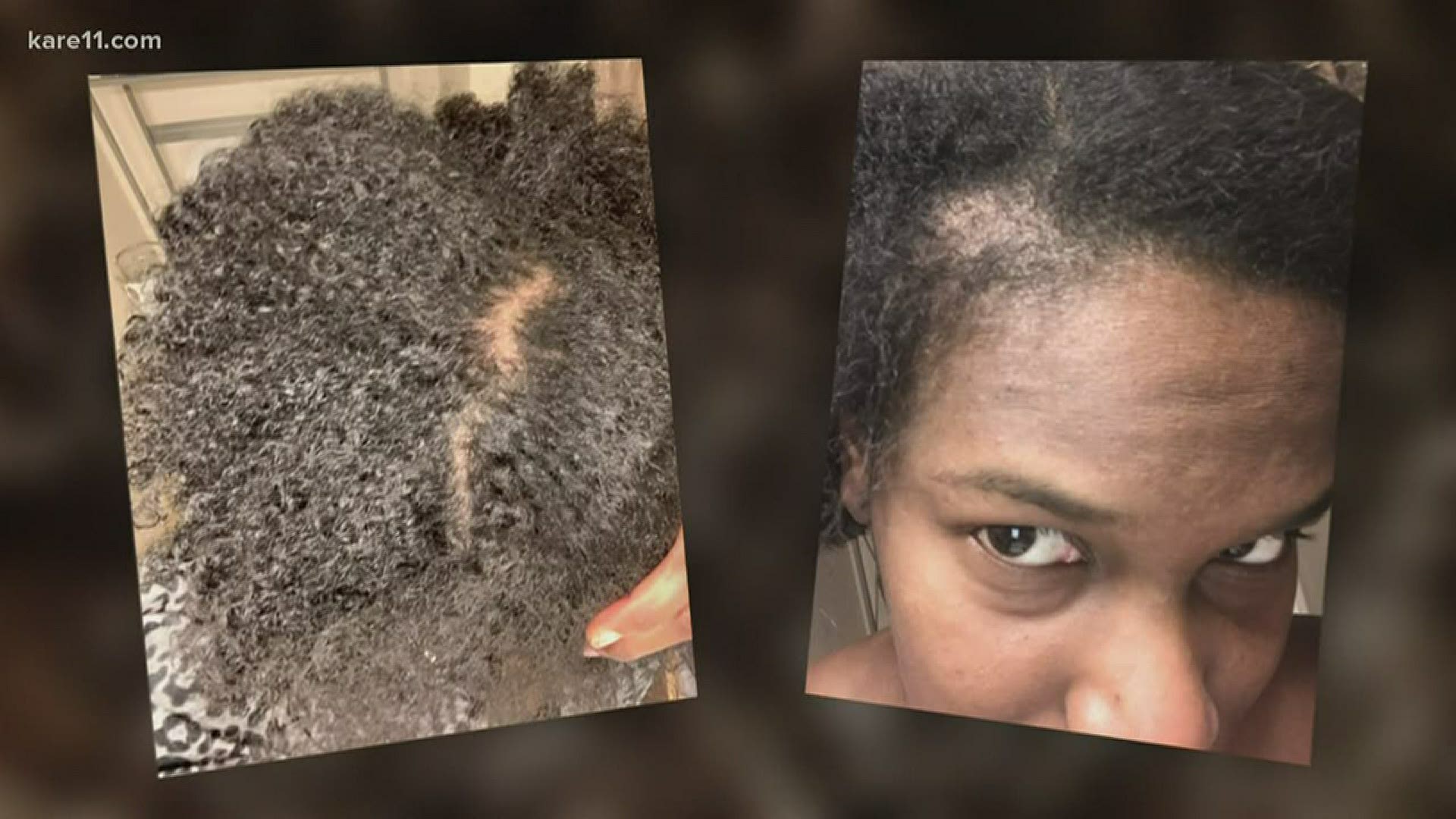Our body speaks. Sometimes pain is a signal for help. And as Minnesotans adapt to changes created by the coronavirus, more people are struggling with stress, anxiety and other issues.
Crystal Puckett, owner of Solace Salon, said some of her clients are suffering.
"I'm seeing more shedding of hair. Thinning around the hairline and balding toward the crown of some of my client's scalps," she said. "We are stressed and our hair is stressing too. The chaos on the inside is coming out."
Puckett, a salon owner for 15 years, said a handful of clients have sent her pictures asking for help with their tresses. Some of the images she shared with us show balding near the crown of the scalp, thinning around the edges and extreme breakage.
Monique Costello is a health educator and culinary expert with Soma Institute in Chicago. She too said stress can lead to hair loss, which impacts other parts of the body. Part of managing stress includes your diet.
"Eating foods that are highly processed can cause inflammation of the body and that raises your level of stress in your body and now you have this immune system that is fighting not just stress from your mind but stress coming in from the food you are eating," Costello said. "Instead of grabbing that coffee first thing in the morning, drink a big glass of water with lemon."
Both Costello and Puckett are helping their clients navigate.
"A lot of remedies that I have given them are things that can't be found in their kitchen because I do not want them to go out and be exposed. I want to keep them safe," Puckett said.
First up, she recommends egg yoke.
"Shampoo your hair lightly. Separate the eggs and put the yoke on your hair and leave it on for 15 - 20 minutes, then rinse she said.
Puckett said do not add heat or spend time under a hooded dryer.
Puckett adds that Avocado oil is also great too. It has Omega-3 Fatty Acids and helps strengthen hair, which she said can prevent shedding.
"Rice water is another awesome thing. Put your organic rice in a bowl. Let it remain in the water for one day or overnight," she said. "Then, you take the water you collected and gently shampoo your hair. Spray the rice water you collected on your hair. Put on a plastic shower cap for an hour or two, then rinse out."
Puckett says when salons are allowed to reopen, she plans to provide protein treatments for clients experiencing hair loss. There are some treatments you can purchase and use at home, but she said you should check with your doctor first.
Meanwhile, Costello recommends a morning routine away from the phone.
"Stop and breathe. Drink that big glass of water and try a breathing exercise. It is a much easier way to approach your day," she said.
Also, Mayo Clinic experts say stress and hair loss don't have to last forever. If you notice sudden hair loss, contact your doctor.
On its website, the Mayo Clinic highlights three types of hair loss associated with high stress levels.
- Telogen effluvium. In telogen effluvium, significant stress pushes large numbers of hair follicles into a resting phase. Within a few months, affected hairs might fall out suddenly when simply combing or washing your hair.
- Trichotillomania. Trichotillomania is an irresistible urge to pull out hair from your scalp, eyebrows or other areas of your body. Hair pulling can be a way of dealing with negative or uncomfortable feelings, such as stress, tension, loneliness, boredom or frustration.
- Alopecia areata. A variety of factors are thought to cause alopecia areata, possibly including severe stress. With alopecia areata, the body's immune system attacks the hair follicles — causing hair loss.
KARE 11’s coverage of the coronavirus is rooted in Facts, not Fear. Visit kare11.com/coronavirus for comprehensive coverage, find out what you need to know about the Midwest specifically, learn more about the symptoms, and see what companies in Minnesota are hiring. Have a question? Text it to us at 763-797-7215. And get the latest coronavirus updates sent right to your inbox every morning. Subscribe to the KARE 11 Sunrise newsletter here. Help local families in need: www.kare11.com/give11.
The state of Minnesota has set up a hotline for general questions about coronavirus at 651-201-3920 or 1-800-657-3903, available 7 a.m. to 7 p.m.
There is also a data portal online at mn.gov/covid19.

